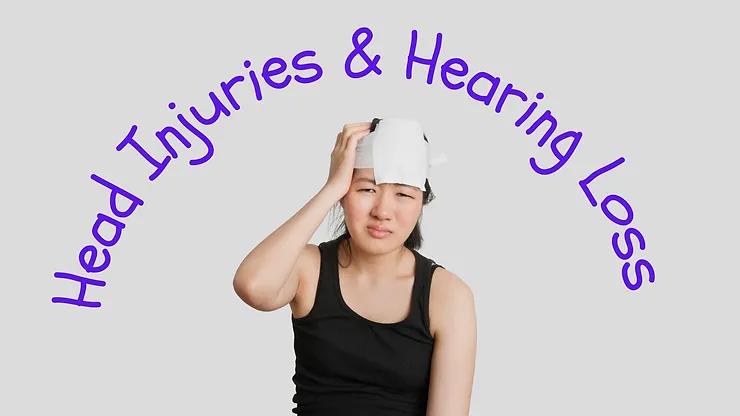
People typically associate hearing loss with aging or exposure to loud noise. While these are common causes, hearing loss can also develop as a result of various other factors including head injuries.
According to the Centers for Disease Control and Prevention (CDC), up to 3 million head injuries occur annually and nearly one third are specifically traumatic brain injuries. Head injuries are most commonly experienced from accidental falls, car accidents, and being struck by an object. This can produce a range of effects including chronic nausea, headaches, vertigo etc. Additionally, head injuries can cause hearing loss, a permanent medical condition that reduces hearing ability.
Link Between Head Injuries & Hearing Loss
Head injuries involve experiencing brute force to the head which can cause concussions or more severe trauma (traumatic brain injuries). Head injuries can lead to the brain being bruised, swelling, hemorrhaging etc. which can affect various areas that are responsible for functions essential to daily living: memory, decision making, concentration, completing tasks etc. Head injuries can also damage other critical parts of the auditory system including:
-
rupturing the eardrum
-
damaging the ossicles (three tiny bones that are connected) in the middle ear
-
causing the hair cells in the inner ear to die and/or lose sensitivity
-
restricting blood flow in the ear
-
damaging the tissues, membrane, neural pathways that lead to the brain
These injuries prevent the various parts that are impacted by a head injury from carrying out their function in the process of hearing. This consists of the ears absorbing and translating soundwaves into electrical signals. These signals then travel through neural (or auditory) pathways to the brain where they are further processed; allowing us to understand what we hear. So sustained damage from head injuries can disrupt this process, causing hearing loss.
Treating Hearing Loss
If you have experienced a head injury, even mild forms, it is incredibly important to have your hearing assessed. This entails scheduling an appointment with a hearing healthcare specialist, likely an audiologist, for a hearing test. Hearing assessments measure hearing ability in both ears which identifies any impairment and the degree of hearing loss. This noninvasive and painless process establishes your hearing needs, informing the most effective treatment options to meet those needs.
Hearing loss is most commonly treated with hearing aids – electronic devices that are designed to absorb, amplify, and process sound. This provides significant support, alleviating hearing loss symptoms as well as maximizing hearing ability. There are countless benefits of treating hearing loss including enhancing communication, relationships, social life, and overall health and wellness.
More Tips to Protect Hearing Health
In addition to effectively treating hearing loss, there are various practices you can implement to reduce your risk of head injuries and protect your hearing health.
-
Wear protective gear: a useful way to prevent head injuries (or reduce their impact) is to wear protective gear while engaging in sports, driving, riding a bike etc. (helmet, seatbelt). In addition to this kind of protective gear, there is protective wear that can reduce the impact of loud noise. This includes earmuffs, earplugs, and headphones which serve as a protective barrier for the ears.
-
Wear hearing aids: people with hearing loss disproportionately experience accidental falls and injuries. Hearing is a critical sense we use to navigate spaces – it allows us to be aware of hazards so when it is impaired, this can contribute to more accidents. Wearing hearing aids helps alleviate this and allows people to hear much more clearly.
-
Reduce exposure: another way to protect hearing is to reduce your exposure to loud noise. In addition to wearing protective gear, you can also maintain low volume settings on electronic devices, avoid loud environments, roll windows up while driving through busy traffic etc.
-
Take listening breaks: another good practice is to take listening breaks throughout the day. This allows your ears and brain to rest and replenish from constantly absorbing and process sound.
Integrating these simple tips into your daily life can reduce your risk of developing hearing loss and also improve your hearing. This nourishes your hearing health which is an important aspect of your overall wellness!
